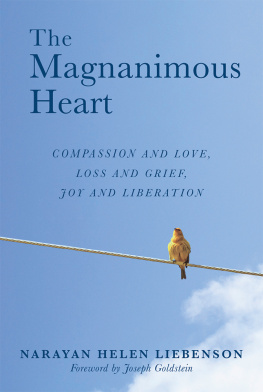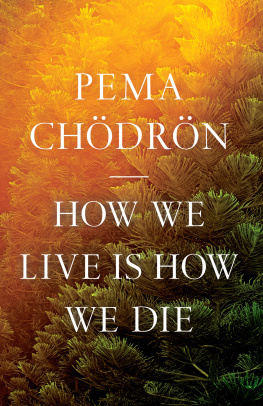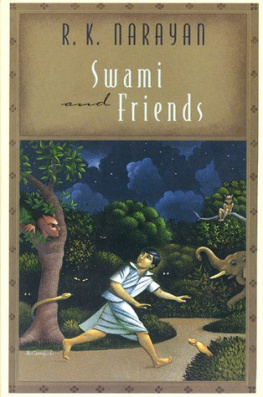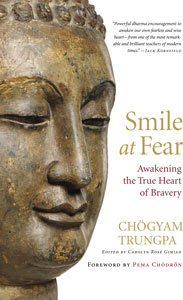Advance Praise for
The Magnanimous Heart
I loved this book and I felt inspired, held, and perfectly guided by it. We need this kind of honest teaching now, more than ever.
Norman Fischer, poet and Zen priest, author of What Is Zen?
A beautiful simpatico expression of Narayans Dharma transmissions in Chan and Vipassana meditation. She handles the subjects of loss and grief with such kindness and wisdom that the reader inevitably sees the potential for their own spiritual awakening within these often-feared states of mind. It is obvious from reading this book that the hallmark of Narayans own evolution through loss and grief has been the unmistakable joy that holds the vagaries of life and shines through each page. For those willing to listen and apply her wisdom, Narayan proclaims this joy as our birthright and illuminates our path forward.
Rodney Smith, author of Touching theInfinite
Narayans exploration of grief and joy is an inspiration. Her personal experience and the wisdom gleaned from it invite you to engage in deep, liberating practice.
Sharon Salzberg, author of RealLove
A very powerful, practical guide for living our life as our practice. The teachings in this book will work for all who want love, freedom, and peace of mind.
George Mumford, author of Th e MindfulAthlete

Wisdom Publications
199 Elm Street
Somerville, MA 02144 USA
wisdompubs.org
2018 Narayan Liebenson
All rights reserved.
No part of this book may be reproduced in any form or by any means, electronic or mechanical, including photography, recording, or by any information storage and retrieval system or technologies now known or later developed, without permission in writing from the publisher.
Library of Congress Cataloging-in-PublicationData
Names: Liebenson, Narayan Helen, author.
Title: Magnanimous heart: compassion & love, loss & grief, joy & liberation / by Narayan Helen Liebenson; foreword by Larry Rosenberg.
Description: Boston: Wisdom Publications, [2018] | Includes index. | Identifiers: LCCN 2018009304 (print) | LCCN 2018036054 (ebook) | ISBN 9781614295082 (ebook) | ISBN 9781614294856 (hardcover: alk. paper)
Subjects: LCSH: Contentment Religious aspects Buddhism. | Generosity Religious aspects. Buddhism. | Magnanimity. | Spiritual life Buddhism.
Classification: LCC BQ4570.C59 (ebook) | LCC BQ4570.C59 L54 2018 (print) | DDC 294.3/444 dc23
LC record available at https://lccn.loc.gov/2018009304
ISBN 978-1-61429-485-6 ebook ISBN 978-1-61429-508-2
22 21 20 19 18 5 4 3 2 1
Cover design by Nichole Day / Flying Pan Creative / flyingpancreative.com.
Interior design by Greta D. Sibley. Author photo by Peggy Barnes Lenart.
To Steven Davis and SarahDoering
Foreword
BY JOSEPH GOLDSTEIN
IN TH E MAGNANIMOUS HEART , NARAYAN Liebenson explores the age-old human predicament of seeking happiness and joy in a world often filled with loss and grief, disappointment and frustration. Drawing on the classical teachings of the Buddha and her own rich life experience, Narayan guides the reader on a true vision quest not for otherworldly experience, but for a new way of understanding the great truths of our lives.
As my first Dharma teacher, Anagarika Munindra, would often say, If you want to understand your mind, sit down and observe it. Of course, this inquiry into our lives need not be limited to sitting down and Narayan illuminates the journey of discovery in all aspects of our lives.
The transformative power of this book lies in the rare combination of great tenderness of feeling, a deeply felt compassion for the suffering of oneself and others, and a profound insight into the causes of that suffering and the very real possibilities of peace.
In her very clear and straightforward way, Narayan illuminates how difficulties along the spiritual path can be transformed into liberating wisdom. I highly recommend this book to you. It shows how we can move through these challenges with grace and with an ongoing interest in discovering the ultimate nature of freedom.
JOSEPH GOLDSTEIN is the author of Mindfulness: A Practical Guide to Awakening, A Heart Full of Peace, and numerous other works.
Preface
HAVING TAUGHT IN A CITY Buddhist center for over thirty years, I have been privileged to accompany countless practitioners through their lives. What this means is that Ive been able to observe what happens when people value contemplation and practice in a dedicated way over decades. And of course, all along I have been practicing as well, vitally interested in living more wisely and with a greater degree of compassion, passionately interested in the liberated heart.
To teach the Dharma is to be invited into what is most intimate in peoples lives their hopes, fears, and insights and to offer in return the Buddhas teachings, its methods and principles of practice. This takes place amid ever-changing conditions ups and downs, gains and losses, and, for all of us at some point, aging, sickness, and death. To be able to offer a path that actually brings the benefits it promises is rewarding beyond estimation.
The promise of the practice as I understand it is twofold, to aspire to a liberating understanding into the causes of suffering and the causes of happiness as well as to make room for the very human anguish that is part of the lives of most people in this world.
And what I know is this: only sitting in meditation is not enough. Only hearing and studying the words of the Buddha are not enough. Only trying to be awake and aware in ones daily life is not enough. All of these practices have to be undertaken together in an integrated way. The practice of training the mind, hearing and studying the teachings, and applying them to every arena of ones daily life whether conditions are wonderful, mundane, or horrific are all essential components of a liberated life, a life of contemplation.
Meeting life from a meditative perspective, rather than the prevailing cultural view of success and failure, lets us meet the world as a field of learning. From this perspective, the conditions we encounter in our lives invite us to learn what we need to learn, to use this human life wisely.
The invitation always is: how can I practice in the midst of adversity? That is to say, how can I practice in the midst of a life that does not feel quite right, or in the midst of a life that includes lovely conditions yet still feels incomplete, or in situations in which loss is profound, or at times of struggle with painful emotions, with anxiety and isolation, or with troubling world events. Adversity can mean many things.
The ancient teachings of the Buddha are as applicable today as they were when the Buddha was alive. The human psyche does not seem to have changed. We still long for happiness and peace, and we still mistakenly try to find it in externalities. The questions are these: Where can the hearts longing be fulfilled? How can we view lifes pain as a pathway instead of as only an obstacle? Is there a way to understand loss differently than we do? Answering these questions is the purpose of this book.
The following chapters have a natural sequence. They explore first the reality of loss, then look deeply at our reactions and responses to loss, and conclude by holding up a possibility of living a life of joy and liberation. Yet, rather than being like links in a chain, these themes are like threads in a weaving, with the truths of the Buddhas teachings interwoven throughout.













